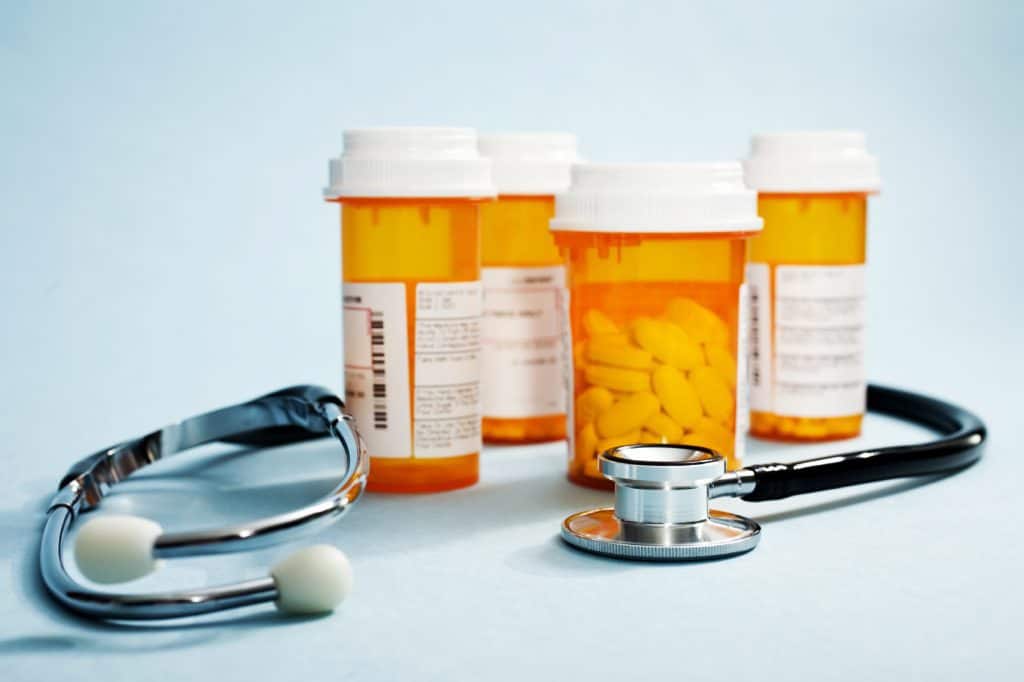Medications and Drugs for Chronic Prostatitis

Medically reviewed by Dr. Paul Song M.D
Article at a Glance
- Your doctor may prescribe medications for pain, infection, urinary health, spasms, inflammation, and depression.
- Antibiotics are often ineffective treatments because the majority of prostatitis cases do not involve bacteria.
- Some drugs cause side effects, so be sure to ask questions before taking them.
At times it is necessary to take medications and drugs for chronic prostatitis. Depending on the patient’s symptoms and causes of prostatitis, medication can be necessary or beneficial. Other time, they can be unnecessary or even harmful. Unfortunately many drugs bring with them some significant side effects, and some doctors overprescribe them for patients who don’t actually need them, leading to unwanted side effects or long-term antibiotic resistance.
Common Medications and Drugs for Chronic Prostatitis
The most common medications and drugs for chronic prostatitis include:
- Antibiotics (for infection)
- Anti-depressives (for neuropathic pain)
- Anti-inflammatory drugs (for pain and inflammation)
- Alpha blockers (for urinary symptoms)
- 5 alpha reductase inhibitors (for urinary symptoms)
- Anticholinergic agents (for symptoms of overactive bladder or “sudden urge” to urinate)
- Muscle relaxants (to ease pain and pressure, relax pelvic muscles, and reduce anxiety)
- Gabapentinoids (for neuropathic pain)
Many doctors prescribe antibiotics for prostatitis just “to rule out infection,” but the majority of chronic prostatitis symptoms are not caused by bacteria. Ask your doctor about tests and lower urinary tract cultures that can rule out infection for you without resorting to antibiotics. If bacteria are present then antibiotics are generally the first level of treatment, but if your results are negative for bacteria, ask your doctor “why” you should take antibiotics. Taking antibiotics when you have no bacteria present wastes your time and money, plus it has detrimental long-term effects to your health, such as antibiotic resistance, which means that the drugs will not work well for you in future illnesses when you do have a real bacterial infection or when you require, say, a prostate biopsy procedure.
Antibiotics such as Cipro also kill off the beneficial bacteria in your gut and have very serious side effects. Make sure after you take any course of antibiotics that you replenish the beneficial bacteria in your gut with a course of probiotics that are specifically formulated for men.
Anti-depressives for prostatitis are drugs that are usually prescribed after other traditional methods have not worked. They can help with neuropathic pain, which is pain that is caused by damage or disease that affects the sensory system in the body. Anti-depressives may help with some urinary symptoms and are helpful for men suffering from psychological depression resulting from dealing with the ongoing pain and other symptoms of ongoing chronic pelvic pain syndrome (CPPS).
Nonsteroidal anti-inflammatory drugs (NSAIDS) such as ibuprofen (over the counter) and Celebrex (by prescription) may be helpful for pain and inflammation short-term, but these drugs do have some long-term side effects. Patients are encouraged to consider the number of natural prostatitis treatments and alternative prostatitis treatments to help with ongoing inflammation in order to avoid side effects from these drugs.
For urinary symptoms, doctors sometimes prescribe medications used to treat an enlarged prostate. Both alpha blockers and 5 alpha reductase inhibitors may help patients who are experiencing urinary symptoms, but these drugs are generally not recommended as the first line of therapy. These medications can cause side effects such as long-term sexual dysfunction (such as ED), ejaculation problems, and even a high risk of prostate cancer (in the case of Proscar [finasteride]). If you experience symptoms of an overactive bladder or the sudden urge to urinate, your doctor may recommend anticholinergic agents to help with those types of urinary symptoms.
Muscle relaxants for prostatitis may be prescribed for men who have pelvic tension disorders associated with their CPPS. Muscle relaxants help in several ways. They calm the central nervous system, reduce anxiety, and relax the pelvic muscles. This can reduce muscle spasms and may ease the pain and pressure men experience. Muscle relaxants do have many side effects and warnings. Fortunately there are many natural and alternative prostatitis treatments you may consider to help with muscle spasms and chronic tension disorders.
Your doctor may prescribe gabapentinoids for prostatitis if you have nerve and/or neuropathic pain and other medications or treatments have not provided relief. These medications are traditionally used for other kinds of conditions such as epilepsy, convulsions, and nerve damage. Your doctor may also recommend other medications, like Zyloprim, which reduces acid production.
If your doctor prescribes any medication for you, be sure to ask questions. Ask why a drug is being prescribed, what its potential side effects may be, and if there are any long-term risks associated with taking it. Bring a list of other medications and supplements you are taking to your doctor and pharmacist so they they can look up interactions. Use caution when considering using medications. You might consider applying natural prostatitis treatments like supplements and drug-free alternative prostatitis treatments. These therapies may effectively relieve symptoms without causing negative side effects or the risks commonly associated with taking drugs for chronic prostatitis.
Natural Prostatitis Treatments
Alternative Prostatitis Treatments
